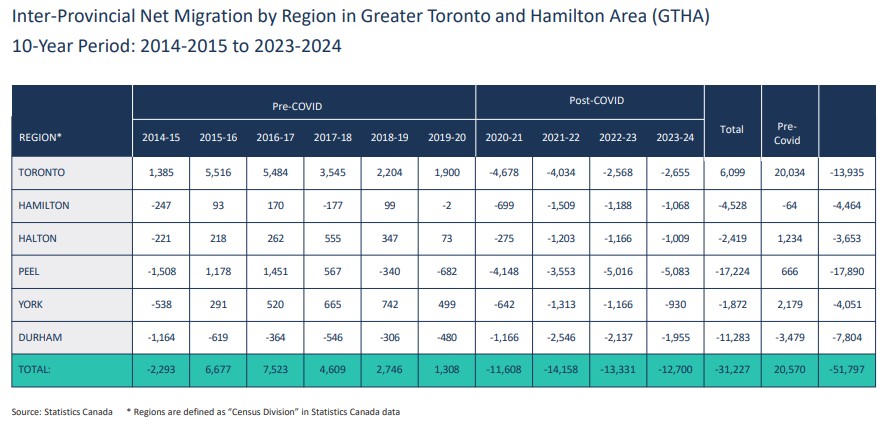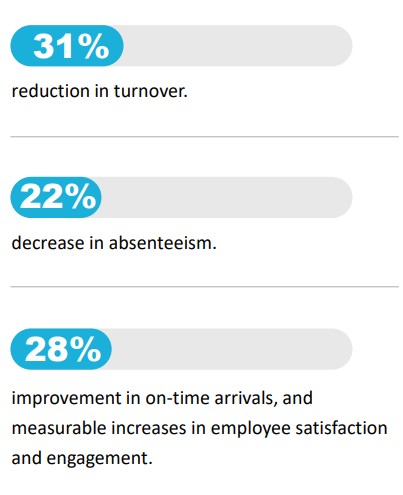
'Cities can’t function when the workers who power them can’t afford to stay,' says expert citing productivity losses with long commutes

The housing crisis in the Greater Toronto and Hamilton Area (GTHA) may drive companies—and jobs—out of the region, according to a recent report.
That’s because 42% of businesses are considering relocation specifically due to workforce housing challenges, notes CivicAction.
Nearly seven in 10 businesses (68%) report difficulties in attracting talent due to housing costs, and 22% have seen an increase in average recruitment costs over the past five years.
“Essential service delivery is compromised when healthcare workers, educators, and first responders can’t live near their workplaces,” CivicAction states in their report, The Why: The Human Story of Workforce Housing.
The housing crisis is also directly affecting business performance. According to the report, 270,000 essential workers now commute more than 90 minutes each way, leading to “productivity losses of $0.65 to $1.95 billion annually.”
“Cities can’t function when the workers who power them can’t afford to stay,” says CivicAction CEO Leslie Woo. “It means strained public services, fewer people entering key professions, reduced wellness, and a growing sense that our neighbourhoods are becoming less liveable for everyone.”
High housing costs are also restricting Canadian workers' ability to relocate for job opportunities, which is curbing talent mobility and slowing national productivity growth, according to a previous report.
Currently, workers in the GTHA are spending, on average, over 30% of their income on housing, according to CivicAction.
Over the past decade, more than half a million residents (522,191) moved from the GTHA to other regions in Ontario, while 31,227 relocated to other provinces.
“An analysis of which regions or provinces they were moving to suggests that they were likely primarily driven by housing affordability,” write TD Housing Affordability Leaders-in-Residence Jeanhy Shim and Mukhtar Latif in the report.
The CivicAction analysis reveals a startling ratio: for every two international immigrants who settle in the GTHA, one existing resident leaves for more affordable areas.
“We have already seen the beginning of this exodus from most major cities in the GTHA. And when you do the math, it’s a stunning $7.5 billion annually in lost GDP,” says Woo.
“This isn’t just a housing affordability crisis. It’s a threat to the social and economic fabric of Canada’s largest urban region.”

Nearly all (94%) of small- and medium-sized businesses (SMBs) say high housing costs are one of the biggest risks facing Canada's economy, according to a previous KPMG report.
However, businesses can play a role by offering housing support to employees—something that yields positive outcomes, according to CivicAction.
Firms that invest in workforce housing solutions experience:

“Beyond individual company benefits, workforce housing investments also create more stable operating environments, expanded labour pools in key locations, reduced infrastructure costs passed through as taxes, and a 2.3x multiplier effect on local economic activity,” note Shim and Latif.
“For business, government and community leaders, the question is not whether to address workforce housing, but how. Those who move proactively will gain significant advantages in talent attraction, operational efficiency, and community goodwill. Those who wait may find themselves increasingly constrained by the very challenges this paper has outlined. “
Previously, one company expanded their benefit scheme to make homeownership more accessible for their workers.